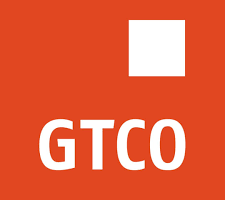As predicted by Blueprint and other analysts, the Monetary Policy Committee (MPC) has left benchmark rate and other related one unchanged at 11.5 per cent yesterday after its last meeting for the year 2021.
Blueprint has previously reported analysts like Bismarck Rewane, Chief Operating Officer (COO) of Financial Derivatives Company (FDC) Limited saying, MPC is likely to maintain status quo as inflation moderates and GDP remains positive.
The positive growth (4.03 per cent) and moderating inflation (15.99 per cent) may persuade the committee to maintain status quo in its policy stance.
Analysts at Afrinvest also spoke along the same line with Bismarck. “Notwithstanding, we believe the third quarter of 2021 GDP performance, the further moderation in the year-on-year (y/y) headline inflation rate, and favourable external conditions such as the recent increase in Nigeria’s oil production quota to 1.67mbpd (from 1.65mbpd), the stabilisation of crude oil prices above $80.00/bbl., and the surprise extension of dovish monetary policy stance in the US would provide comfort for the CBN to maintain status-quo at next week’s Monetary Policy Committee (MPC) meeting”, said Afrinvest.
The NBS released the the third quarter GDP report last week, seven days ahead of the scheduled date (November 24). In line with expectations, the economy sustained its positive growth even though it declined to 4.03 per cent from 5.01 per cent. This brings the average annual growth rate to 3.18 per cent in 2021, which exceeds the IMF (2.6 per cent) and World Bank (2.4 per cent) forecasts.
Yesterday, the MPC of the Central Bank of Nigeria (CBN) voted unanimously to retain the Monetary policy rate at 11.5 per cent during its meeting on Tuesday.
MPC also held same sentiment for the Asymmetric corridor which remained +100/-700 basis points, and The Cash Reserve Ratio (CRR) left at 27.5 percent.
The members of monetary authority also voted to keep the Liquidity Ratio at 30.5 percent, as the CBN governor, Godwin Emefiele, stated that the decision to maintain the perimeter constant was made to support economic growth recovery.
The committee noted that with sustained intervention from the CBN, economic activity will normalise in the short to medium term, “leading to improve output growth and lowering of inflationary pressure.”




